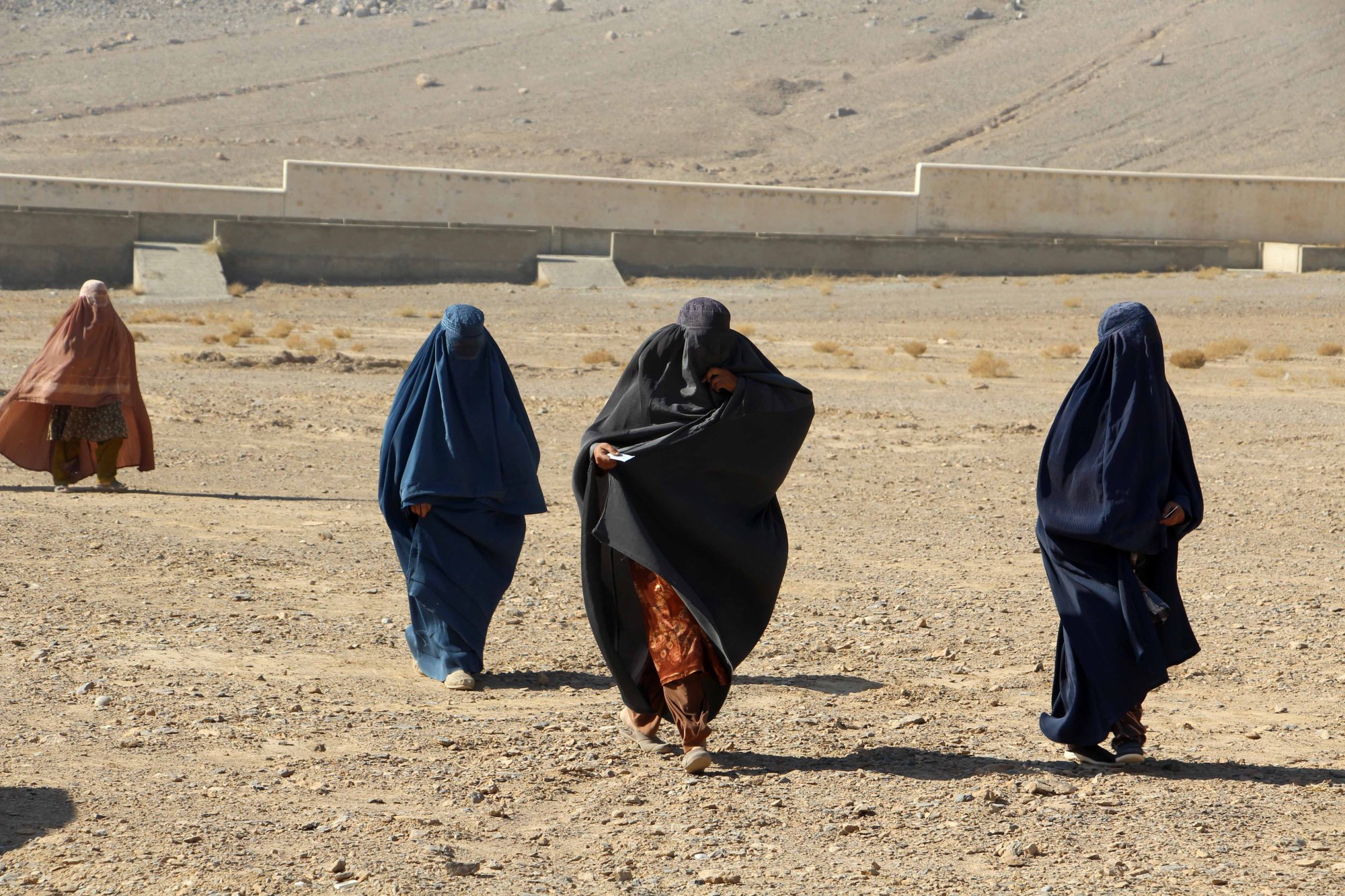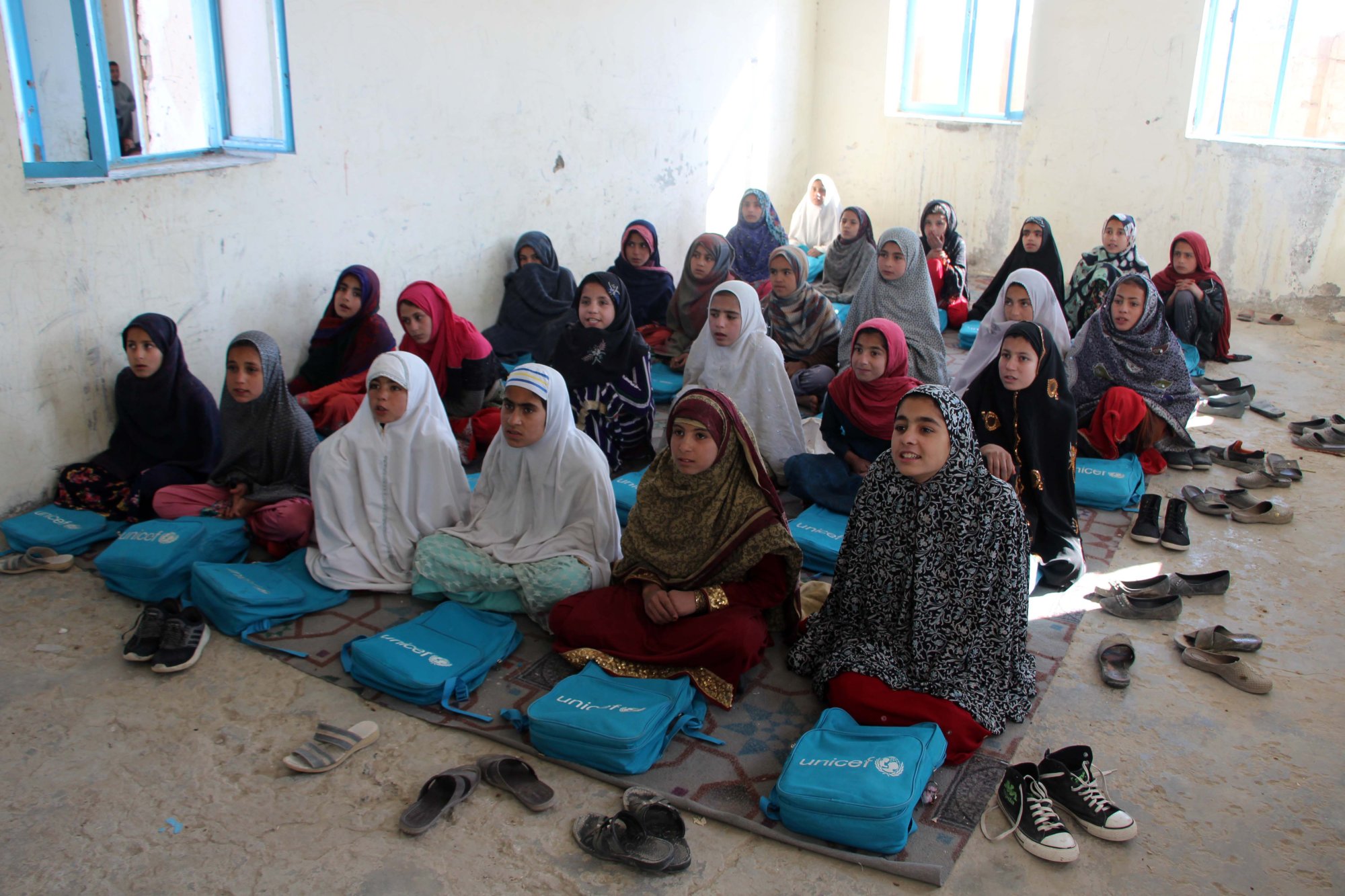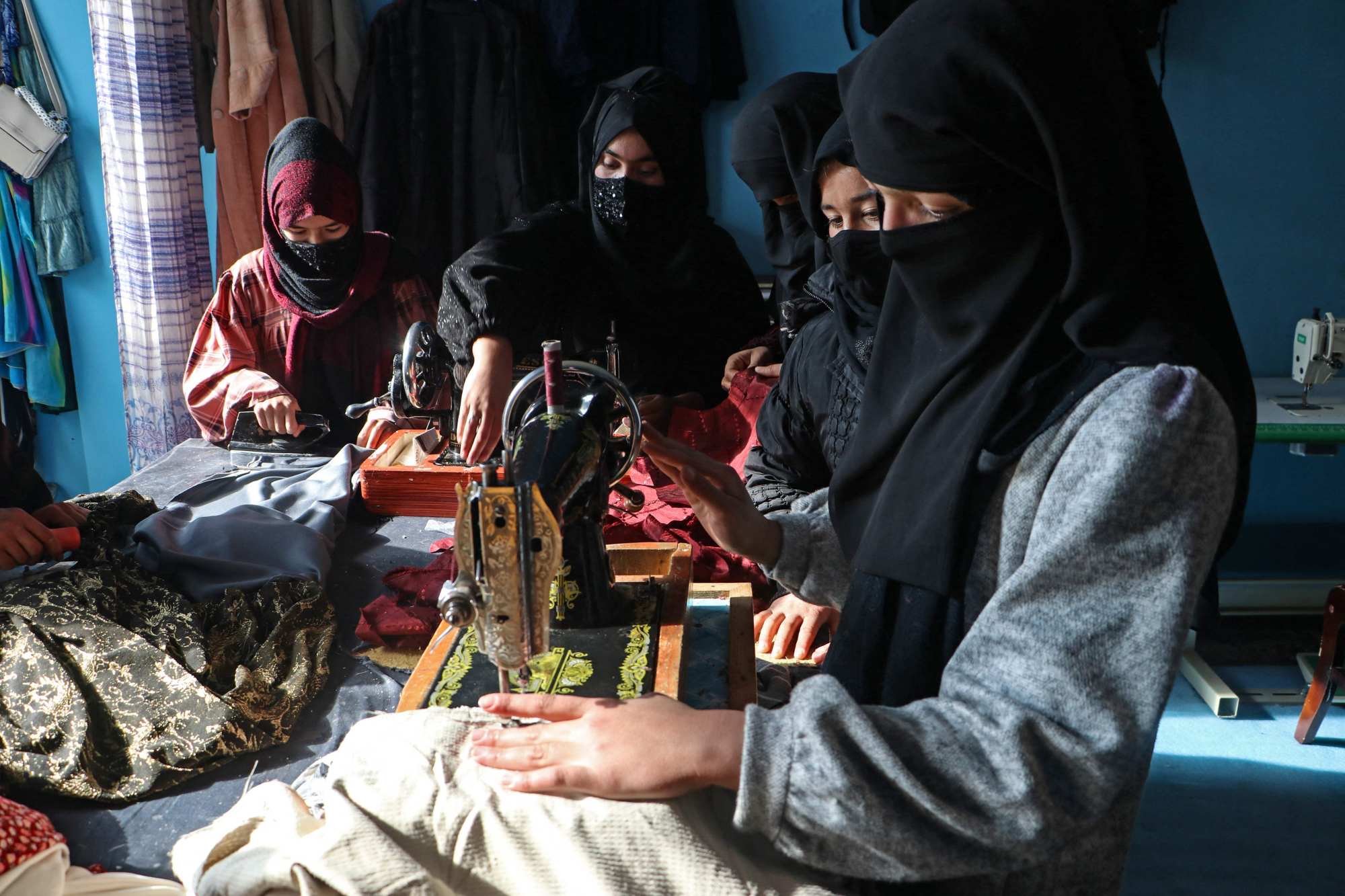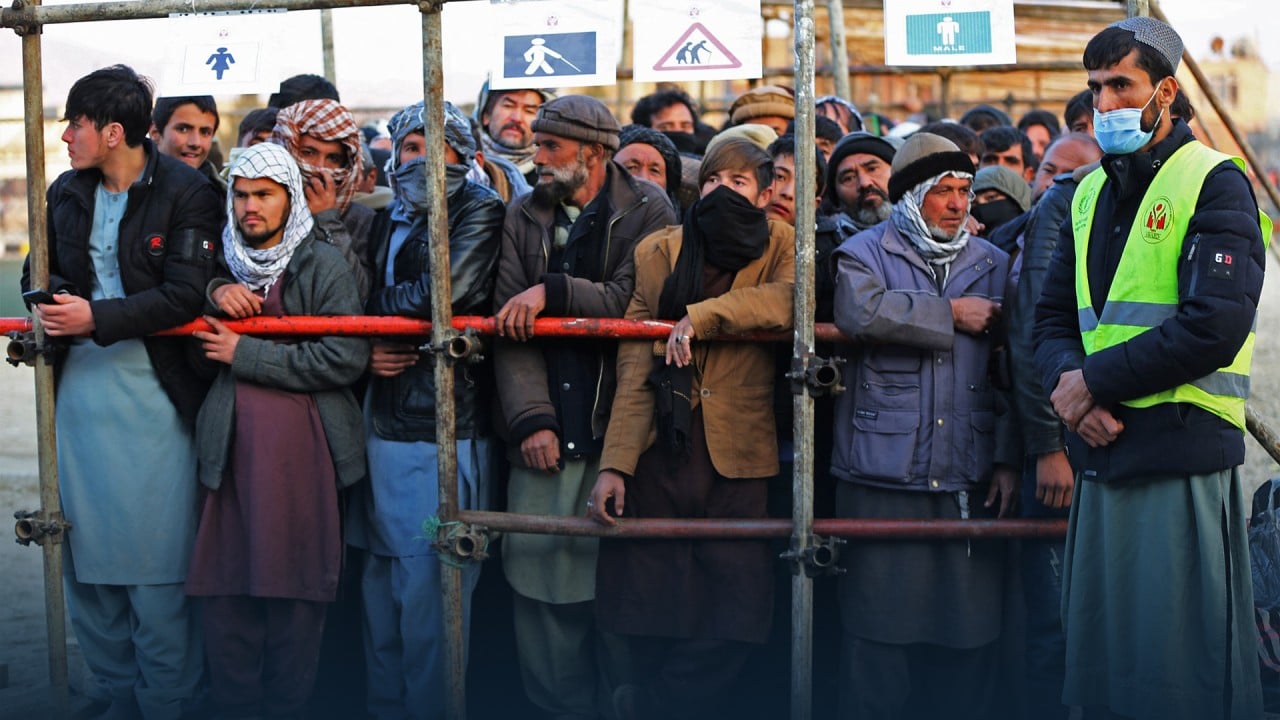
After recapturing the country in August 2021, following the departure of most American coalition forces, the Taliban has barred women from attending secondary schools and universities, working with government and non-government organisations, travelling more than 45 miles (72km), leaving the country without a close male relative, or going to parks and gyms.
In blow to Afghan women’s rights, Taliban make arrests over ‘bad hijab’
In blow to Afghan women’s rights, Taliban make arrests over ‘bad hijab’
Other Afghani refugees echoed her concerns, saying it was important that lasting peace and security be established through a more enabling environment after decades of war.
Saler Alamyar, who is waiting for a United States visa while living in India, struck a more optimistic tone, saying that the current Taliban regime was more liberal and development-oriented than the previous one. He said he believed a sound education policy would eventually be introduced.
However, such a prospect seems distant given the Taliban’s continued crackdown on women’s rights activists.
The UN Assistance Mission in Afghanistan recently called for an end to the arbitrary arrest of Afghan girls’ education activists, writing in a social media post that “rights to family, lawyers, care, fair trial must be upheld”.
Taliban rule ‘made girlhood illegal’ in Afghanistan, Malala says
Taliban rule ‘made girlhood illegal’ in Afghanistan, Malala says
Taliban spokesman Zabihullah Mujahid rejected the UN statement, saying “no arbitrary arrests have been made” and that the group’s actions were lawful and based on sharia law.
Naeem Zaland, an Afghan civil rights activist based in Germany, said he expected that trend to continue.
“Based on my understanding of the Taliban, I strongly believe they will enact an anti-modern education policy against Afghan women, confining them to religious studies in madrasas,” he said.

“Despite attempts to deceive both the Afghan people and the international community, a staggering 99.99 per cent of the Taliban believes that girls’ education is forbidden in Islam,” he said.
“Their claim that Islam only permits women to receive Islamic education is false, as Islam advocates education for both males and females.”
Zaland believes the Taliban fears that educated Afghan women could undermine its control, adding that professions such as journalists, engineers and pilots are “deemed unacceptable” for women.
Hazy future
Many Afghan refugees in Delhi say it is hard for them to pursue education opportunities for their children in a foreign country, as they do not have documents like visas or passports, or money to pay for school fees.

Najib, a middle-aged man with three children, said the local UN office in Delhi was unable to help him secure school admissions for his children, but fortunately a church stepped in and supported their education at a private academy.
However, he worried that without visas, their career prospects were bleak. “We do not know what their future looks like,” Najib said.
Ahmed Pervez and his wife had been teachers in Afghanistan before moving to Delhi. They said they hoped to return to their homeland one day, but only if conditions were “good and peaceful”.
Violence and prejudice in 2023: a year of hurdles for Asia’s women, LGBT folk
Violence and prejudice in 2023: a year of hurdles for Asia’s women, LGBT folk
Pervez noted the Taliban government faced mounting pressure to liberalise education from NGOs, human rights activists and ulama ikram, who are Muslim scholars or interpreters of religious knowledge.
While he supports himself and his family by taking up odd jobs – at hospitals as well as running a photocopier machine – Pervez says he indulges his passion for teaching informally, such as by helping out as a volunteer at local sports meets in India.
“To me, they are all children,” he said. “It is all the same.”


